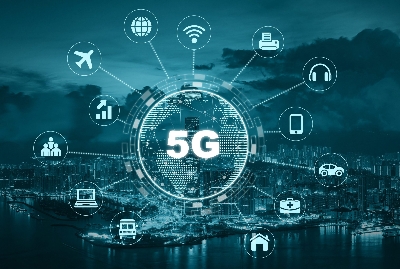
5G technology marks a significant advancement in mobile telecommunications, offering numerous benefits and transformative potential for society. Here are some key reasons why 5G is important:
Enhanced Connectivity: 5G provides faster data speeds and more reliable connections, enabling seamless communication for individuals and businesses. This is especially crucial in today’s world where remote work, online education, and digital interaction have become commonplace.








Low Latency: With reduced latency, or the delay before a transfer of data begins following an instruction, 5G enables real-time applications such as remote surgery, autonomous vehicles, and augmented reality experiences. This can enhance safety, efficiency, and user experience across various domains.
Increased Capacity: 5G networks can support a much larger number of connected devices than previous generations. This is essential for the growth of the Internet of Things (IoT), where everyday devices—from home appliances to industrial machinery—are connected to the internet, facilitating smarter cities and homes.
Economic Growth: The deployment of 5G is expected to stimulate economic development by creating new markets and opportunities for innovation. Industries such as healthcare, transportation, and manufacturing can benefit from enhanced connectivity, leading to improved productivity and efficiency.
Support for Emerging Technologies: 5G technology can support advanced applications such as artificial intelligence (AI), machine learning (ML), and big data analytics by providing the necessary speed and bandwidth. This can lead to breakthroughs in various fields, including healthcare, robotics, and smart infrastructure.
Public Safety and Emergency Response: Enhanced communication networks can improve public safety capabilities. For instance, first responders can communicate more effectively during emergencies, utilize real-time data for better decision-making, and manage resources more efficiently.
Access to Information and Services: 5G can help reduce the digital divide by providing high-speed internet access to underserved and rural areas. This can enhance access to education, healthcare, and economic opportunities, fostering greater equity in society.
Environmental Benefits: 5G can contribute to more efficient resource management and environmental monitoring. Smart grids, intelligent transportation systems, and connected devices can optimize energy consumption and reduce waste, supporting sustainability efforts.
Innovation in Transportation: The automotive industry is moving towards more connected and autonomous vehicles. 5G technology can facilitate vehicle-to-everything (V2X) communication, which is crucial for the safety and efficiency of self-driving cars and traffic management systems.
Customization and Personalization: With 5G’s capabilities, businesses can deliver more customized and personalized services to consumers, enhancing customer experience and engagement across various sectors, including retail and entertainment.
In summary, 5G technology is poised to play a critical role in shaping the future of society. Its impact spans economic development, public safety, environmental sustainability, and the overall enhancement of everyday life, making it a cornerstone of modern communication infrastructure.


Leave a Reply